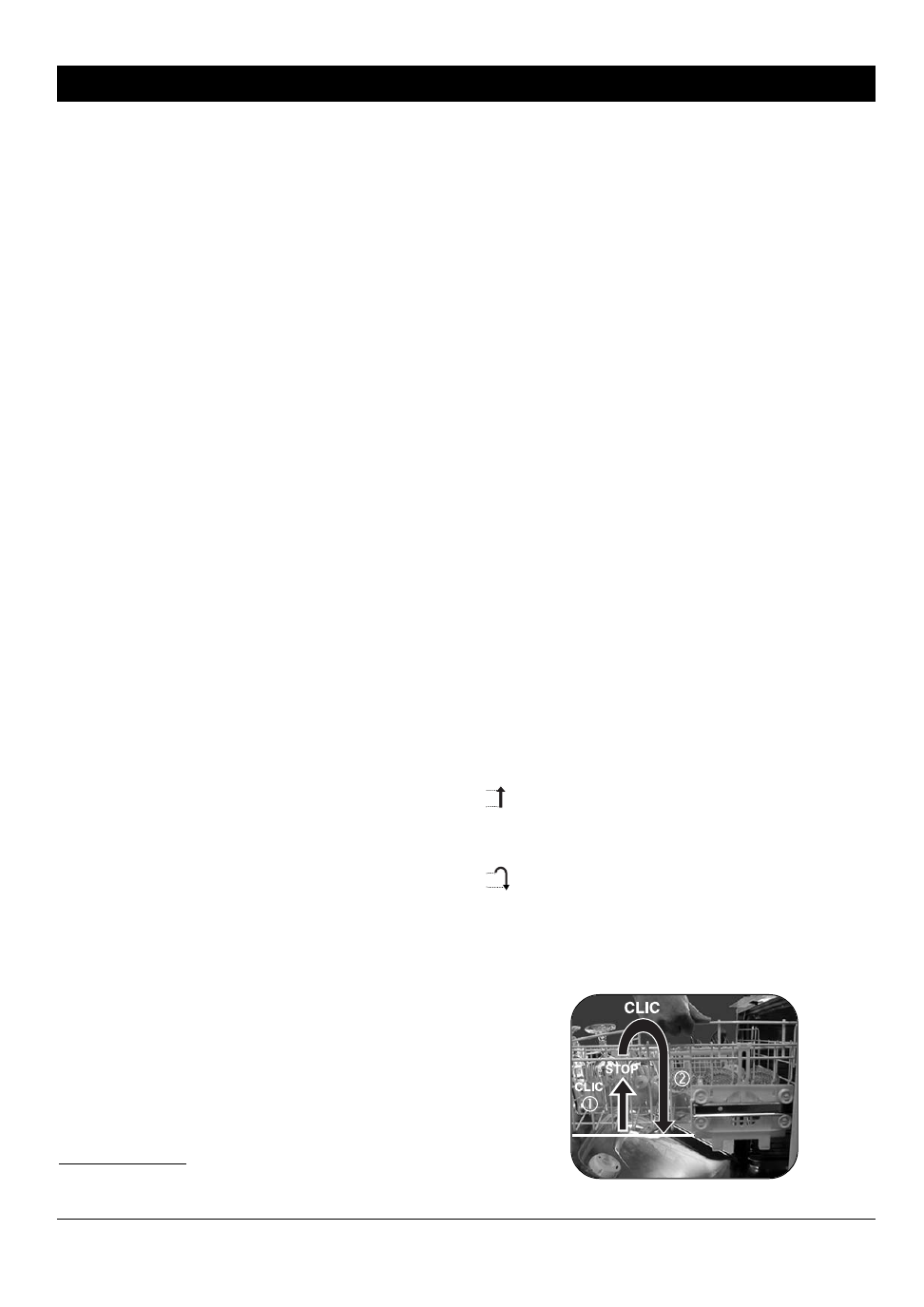Loading the dishwasher – Kleenmaid DW26I User Manual
Page 8

• 8 •
LOADING THE DISHWASHER
For best washing results, be careful before loading
dishes to remove food residue. Any burned or stuck
leftovers should be removed.
Your dishwasher has two baskets for 12 place
settings (132 pieces) according to AS 2007 (Fig. A-
B-C see page 20). Always turn the inside of the
dishes towards the bottom. Be sure that no dish
hides others and the spray jet is not obstructed.
Check that the spray arm is free to rotate.
Lower basket (Fig. 7-9-10)
Place the dishes so that water may circulate
freely and spray all the utensils. (Avoid
attaching and piling dishes up).
This basket is especially intended to hold:
plates, cutlery, dishes, frying pans, saucepans.
Dishes and frying pans can be placed on the
right-hand side or even in the front.
Avoid mixing plates and soup dishes. You should
preferably place same-sized plates together.
Place soup dishes at the back, in the high pin
area.
Make sure nothing obstructs the rotation of the
lifting arm (saucepan handles, cutlery or large
dishes).
Collapsible racks on the front and back of the
basket facilitate storing large recipients.
The cutlery baskets are sliding and can be
placed in any area of the lower basket meaning
that you can change the layout according to the
type of dishes you are washing.
Removable grids are adaptable to cutlery
baskets allowing you to arrange cutlery,
especially small spoons, as you wish.
For optimum washing, you can use the
separation grids.
Cutlery (Fig. 8)
• Place handles downwards.
• It is preferable to place small spoons in the
separating grids.
• Avoid washing wooden, bone or hollow
handled cutlery in the machine.
• Separate silverware from other metals using
the separating grid.
• Dropping knives point first will cause damage
to the basket and will not be covered under
warranty.
Important note : For reasons of safety, we
recommend you place sharp-ended table knives
blade down in the cutlery basket.
Long-bladed cutlery and other sharp utensils
should be placed flat in the upper basket.
Upper basket (Fig. 10-11)
This basket is particularly intended to hold
glasses, cups, ramekins, small salad bowls, bowls,
saucers etc…
Place glasses so that they do not touch and tip
them sufficiently so that they do not retain any
water. Place the hollow end of glasses, cups
and bowls facing downwards. Arrange the
dishes methodically to gain space (rows of glass,
cups, and bowls).
You can also stack cups, ladles, etc. on the racks.
You can place a cutlery basket in the upper
basket.
If your cutlery or your plates are too large,
adjust the height of the upper basket
The “Mezzanine” (Fig. 12) wire shelf enables
you to load cutlery of any size. You can place it
either in the upper or lower basket.
The upper basket should be adjusted to the HIGH
position when loading large plates in the lower
basket.
Setting the HIGH POSITION
Slowly lift the basket until you hear a
click on each side.
Setting the LOW POSITION
Lift the basket completely on both sides
(click) and then follow it downwards.
Make sure that the two runners are adjusted
to the same level.
①
①
②
②
